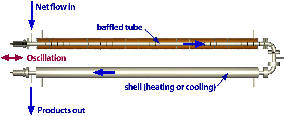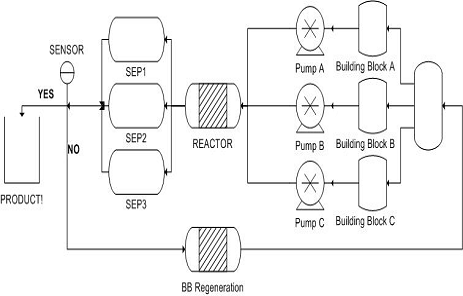|
Evolvable Process Design
(EPD)
The process industries in 2020
will need to produce new products more rapidly
and flexibly than ever before.
The Evolvable Process Design
(EPD) concept is to develop a chemical reactor
system that allows the evolutionary discovery of
molecules, materials and processes. The concept
consists of three parts: development of a
chemical process system, development of an
integrated genetic algorithm feedback control
system and the use of chemical building blocks
that can reversibly bind together to form a
range of molecules .
EPD is a multidisciplinary,
multicentre EPSRC-funded project, involving
chemists, chemical engineers and physicists,
from Newcastle, Glasgow, Brunel, Warwick and
London City universities.
At Newcastle we will be
developing the laboratory scale process, which
will include feeds, reactor and downstream unit
operations. It will be designed and built to be
intrinsically scaleable and flexible in
operation. The unit will be continuous and
operate in plug flow (see Figure 1). The final
EPD will be designed so that the sequence of
unit operations can be reconfigured online. The
EPD system aims to utilize feedback and select
mechanisms based on spectroscopic properties of
the system/molecules/materials being evolved
(see Figure 2).
Development of the EPD will
lead to order of magnitude changes in
time-to-market of new products.

Fig. 1 - A schematic of the Oscillatory
Baffled Reactor (OBR)

Fig. 2 - A schematic of one possible EPD
platform
|